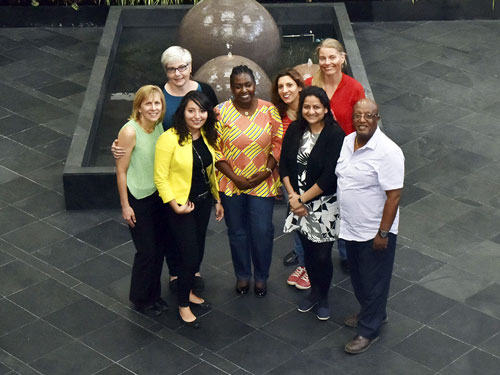Over the last week, MAIZE and WHEAT CRP investigators from the global cross-CRP study on gender in agricultural innovation met at El Batán from 26 Feb to 1 March to take stock of progress so far and plan the next steps in the implementation of this unique research initiative.

The study will draw on interviews and focus groups with men and women engaged in small-scale farming around the world, to hear in their words how they practice and innovate in agriculture, and what factors, especially gender relations, they feel have influenced their success and failures. Through rigorous analysis both of the broader patterns in the data and delving deep into the case studies, the aim is to develop strategic research publications as well as practical observations and tools to integrate gender-sensitivity into agricultural research and development.
The appetite for more knowledge about the role of gender was clear at Gender and Development Specialist Paula Kantor’s well-attended brown bag lunch on Friday, introducing the GIZ-funded project on gender constraints to wheat R4D in Afghanistan, Ethiopia and Pakistan.
As CIMMYT Gender Specialist Lone Badstue opened the workshop, she reflected on how quickly gender research has advanced since the CRPs were set up in 2011. From less than one full-time gender-specialist on staff, there are now the equivalent of eight full-time staff working with the CRPs on gender and 20 large projects with gender-integration.
At the workshop, the gender specialists shared their experiences of the 19 case studies conducted under MAIZE and WHEAT so far, before settling down to discuss data quality control and coding.
 Capacity development
Capacity development